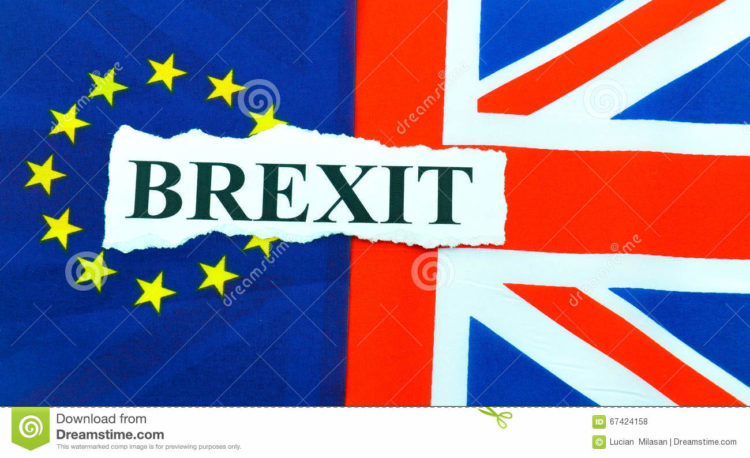EU Is Said to Reject U.K. Brexit Plan as Irish Impasse Deepens

published Apr 19, 2018, 6:06:56 PM, by Ian Wishart and Dara Doyle
(Bloomberg) —
European Union officials are set to reject a potential U.K. solution to the crucial issue of what happens to the Irish border after Brexit, deepening the stalemate in negotiations.
While the U.K. hasn’t made a formal proposal, it has indicated that the bloc’s “backstop” solution for maintaining an invisible border should apply to the whole of the U.K., according to three people familiar with the EU position. It would mean the whole U.K. stays in parts of the single market and customs union as a last resort to avoid a border on the island of Ireland.
But the European Commission opposes it and only wants to offer that special status to Northern Ireland, according to the people, who declined to be named.
Finding a way to avoid customs checks on the border between Northern Ireland and Ireland after Brexit is proving the biggest obstacle for U.K. and EU negotiators trying to get a deal on Britain’s divorce from the bloc. While both sides agree that withdrawal treaty must include a “backstop” on Ireland in case a better option doesn’t emerge from the final trade deal, they can’t agree on what it should look like.
As talks fail to yield solutions, pressure is mounting on Prime Minister Theresa May at home to backtrack on one her main Brexit pledges and keep the U.K. in the EU’s customs union after Brexit. That would go a long way to solve the Irish border issue and would also please businesses that are keen on keeping cross-border trade easy.
The Commission’s proposal would effectively cut Northern Ireland off from mainland Britain and May has said no British prime minister could accept that. In December, the two sides agreed on a backstop that would have applied to the whole of the U.K., rather than just Northern Ireland. The U.K. stands by that agreement, which also pledged that “no regulatory barriers develop between Northern Ireland and the rest of the United Kingdom.”
The EU risks accusations that it’s reneging on its December pledge. But the EU is likely to say that applying the backstop to the whole of the U.K. would allow Britain to enjoy some of the benefits of single-market and customs union membership without the obligations, according to the people.
“We have been clear that we will protect Northern Ireland’s place in the U.K. internal market,” a spokesperson for the U.K.’s Brexit department said in an email. “That commitment was set out in December’s joint report, which also includes our guarantee of avoiding a hard border between Northern Ireland and Ireland.”
The U.K. and EU want to get the Brexit treaty, including the Irish border solution backstop, finalized by October to give the British and European parliaments time to approve it before Britain leaves the bloc at the end of March 2019. A separate, non-legally binding document setting out the parameters of the future U.K.-EU relationship will sit alongside it.
Both sides of the negotiations say they hope that the future arrangement will avoid the backstop having to take effect but EU officials said that the U.K. had still not presented any workable alternatives on how customs would work post-Brexit. The U.K.’s longstanding alternatives to the backstop — a customs partnership that would see the U.K. and the EU collect tariffs on each other’s behalves, and the use of technology to avoid customs checks — were again completely rejected by EU negotiators, according to two of the people.
To contact the reporters on this story: Ian Wishart in Brussels at iwishart@bloomberg.net ;Dara Doyle in Dublin at ddoyle1@bloomberg.net To contact the editors responsible for this story: Alan Crawford at acrawford6@bloomberg.net Emma Ross-Thomas, Vivianne Rodrigues
COPYRIGHT
© 2018 Bloomberg L.P



No Comment